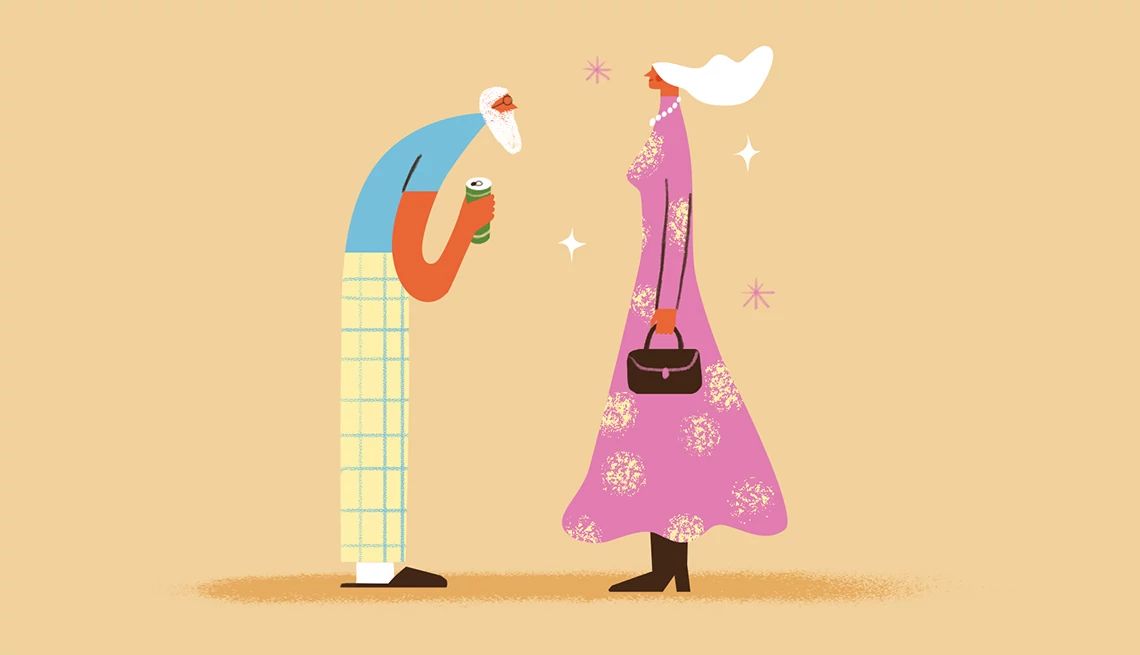AARP Hearing Center


Welcome to Ethels Tell All, where the writers behind The Ethel newsletter share their personal stories related to the joys and challenges of aging. Come back each Wednesday for the latest piece, exclusively on AARP Members Edition.
It began with a sweater — my husband’s refusal to wear one. Just like his mother.
My soon-to-be 77-year-old husband, four years older than I am, is tall and trim, weighing the same as in high school. He’s under doctor’s orders to control his high prediabetes by limiting sugar and processed carbs.
“He has no body fat,” our grown daughter observes when he shivers in winter — in spite of a hat and scarf.
According to Kenneth Koncilja, M.D., a geriatric medicine specialist at the Cleveland Clinic, “as we age, our body distribution changes — including body fat percentage, muscle mass, skin and sweat glands. These changes can affect our body’s thermal regulation.”
When we were married 49 years ago, my husband would freeze me out at night, opening our bedroom window so wide that I needed three blankets on my side of the bed. Menopause permanently changed that; now I’m the one who’s perspiring.
My always-cold husband has a quirk: he refuses to wear sweaters. “They’re itchy,” he says, insisting on flannel shirts that don’t keep him warm enough.
“Wear a shirt underneath,” I suggest.
“Cashmere’s not scratchy,” our daughter advises.
Should I let him shiver if he prefers to? And when did he turn into such a stubborn old man?
He used to make fun of his mother’s refusal to wear a sweater when she reached her 80s. When we visited her in Florida, he became annoyed when she’d blast the heat up so high that we wouldn’t have been comfortable even if we’d worn our bathing suits inside her apartment. He’d sneakily turn down the thermostat, only to later find that she’d turned it back into sauna range.
Next, he begins to complain in restaurants, like his father: it’s too noisy … could you turn down the air conditioning … this table is unacceptable. He bugs the server when his entrée is taking too long to arrive. I cringe the way our daughter did when she was a teenager.




































































You Might Also Like
The Final Straw That Might Make Me Dump My Best Friend
I wish I could overlook my friend's selfishness, but enough is enough
Should You Take a Daily Aspirin?
A cardiologists' advice about who should regularly take this common medication
10 Dating Tips From Senior Dating Influencers
Valentine’s Day is coming up! If you’re tempted to hop back into the dating game to find your special someone, here’s some expert advice